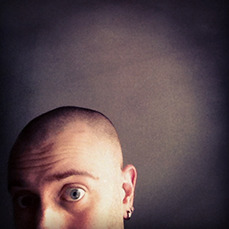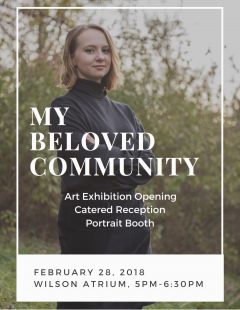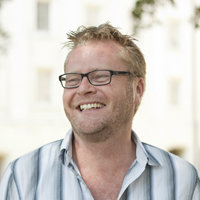[Enjoy this guest post by Lauren Reynolds, doctoral candidate in the Spanish, Italian & Portuguese Department at University Virginia. She came to W&L to give a workshop in Prof. Andrea LePage’s Contemporary Latinx and Chicanx Art course through a Mellon-funded collaboration with the Scholars’ Lab at UVA. More information about this initiative can be found here. This post is cross-listed on the Scholars’ Lab blog.]
I was invited to guest lecture for Professor Andrea LePage’s course, Contemporary Latinx and Chicanx Art. After discussing possible topics for the workshop, Professor LePage and I decided on the topic of “Archive as Protest.” It overlapped with my research on cultural memory in US Latinx texts and presented me with the opportunity to learn more about digital archives. As I developed the plan for the workshop, I organized the information into questions surrounding digital archives, preserving cultural memory, and cataloguing a variety of experiences.
These are very broad questions, so I outlined two goals for the class: First, I wanted the students to begin to think about information storage in the broadest sense. Then we would narrow the idea of seemingly endless information down to a conversation about cataloguing and metadata. Second, I aimed for our discussion of cultural creation and preservation to help the students understand one way in which preserving information through archives can have a positive social impact.
After introductions, we began the lecture with a brief discussion of Jorge Luis Borges’ short story La biblioteca de babel. This story gave me the opportunity to sneak a bit of Latin American literature into the course and provided an entry point for talking about information storage. So, we began with questions about Borges’ conception of an infinite library: Why do you think some people say that Borges “discovered” the internet decades before it was invented? What similarities do you see between the infinite library and the internet? What are some differences? How is a library organized? Is the internet organized? What possibilities/challenges do a universe of information pose?
Next, we zoomed in to a more focused discussion of archives, their purposes, and how the internet has changed the preservation and accessibility of information. We talked about documenting history from many perspectives and, in small groups, the students reflected on the following quote from Daniel Mutibwa:
“The overarching argument is that local, alternative, bottom-up approaches to telling (hi)stories and re-enacting the past not only effectively take on a socio-political dimension directed at challenging dominant, hegemonic, institutional narratives and versions of the past, but – in doing so – they also offer new and refreshingly different ways of understanding, representing, remembering, and rediscovering the past meaningfully in ways that local communities and regions can relate with.” (Mutibwa)
The students began to connect this quote to their own interests as we discussed the possibilities of digital archives. We specifically looked at the Hurricane Katrina collection to talk about the pros and cons of bottom-up archives: http://hurricanearchive.org/collections
We noted how such archives allow for individual stories to be shared and they can become part of a community’s healing processes after a tragedy.
This digital archive also prompted interest in logistical questions, such how stories are collected, saved, and mapped in the creation of an online archive. Specifically, the students were asked to think about:
- Development: How to choose what to include, authenticity
- Retrieval and Collection
- Reaching the Community: Supporting Research, Learning, and Teaching
- Reference Information and Providing Access
Our last activity gave them the opportunity to learn about different types of metadata and its role in cataloguing. We discussed social media presences as types of personal, living archives and how hashtags such as #TBT, #breakfast, and #gooddog can be seen as a means of organizing Instagram posts. In pairs, the students were then given three photos of different US Latinx artworks and asked to assign categories to each photo. They thought about specificity and accessibility: how to make the photos both accessible in broad searches, but easily found for specific inquiries. Each pair shared their selected words with a larger group. After comparing their different hashtags and debating which labels were most useful, each group came up with a definitive set of categories. We compared the different “data sets” created in class, noting the benefits and possible drawbacks of each set.
The class concluded with small group discussions of overarching questions:
- Difficulties posed by the fact that technology is always changing
- How to establish trust between archive curators and communities
- Library neutrality, the library’s role in community engagement, and the line between memorial and protest
- Advantages and disadvantages of allowing anonymous submissions
- Oral Histories: Who determines what questions are asked? How are these interviews and all texts edited and by who? Can “alternative” truths be abused to represent dangerous falsehoods?
-
How do we preserve horrific histories? Do we reproduce offensive terms?
With the time remaining, the students talked about whichever question interested them most in their work and, more broadly, in their lives.
Mutibwa, Daniel H. “Memory, Storytelling and the Digital Archive: Revitalizing Community and Regional Identities In the Virtual Age.” International Journal of Media & Cultural Politics, vol. 12, no. 1, 2016, pp. 7-26.


